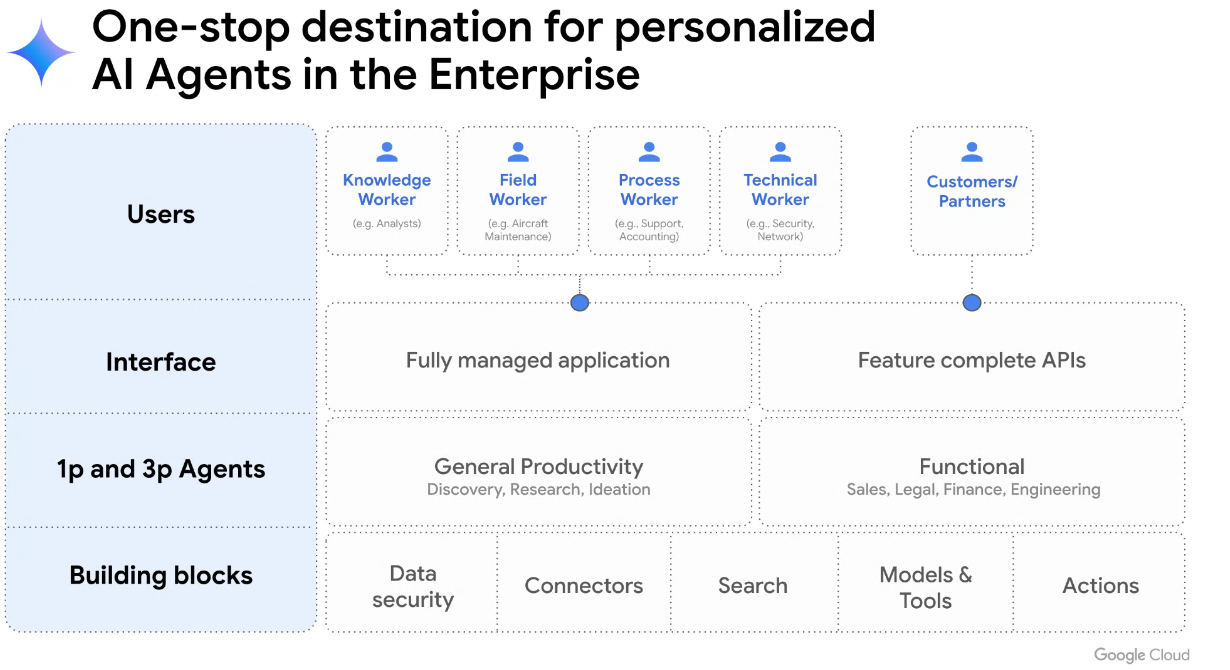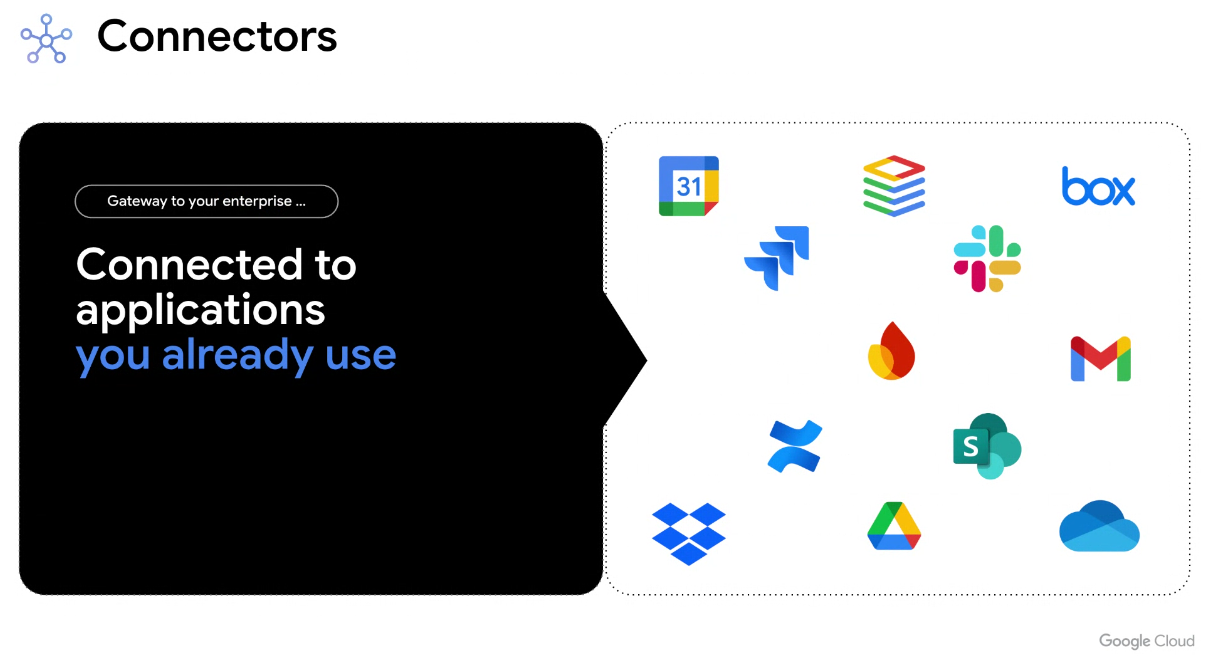Google Cloud launched Agentspace, which is designed to create and deploy AI agents, and a version of NotebookLM for the enterprise.
With an enterprise version of NotebookLM, Google Cloud is adding enterprise privacy, security and compliance, identity support and grounding in enterprise data sources.
But Agentspace is the headliner as hyperscale cloud providers and other vendors such as UiPath are looking to create and automate AI agents. The topic has bubbled up throughout 2024, but Salesforce's Agentforce launch solidified the company. Agentic AI is pitched as a way to automate work and complement (if not replace) labor. AWS' Amazon Q and Bedrock, Salesforce Agentforce, Google Cloud, and Microsoft Azure all have their agentic AI visions.
- Agentic AI without process optimization, orchestration will flop
- Enterprises leading with AI plan next genAI, agentic AI phases
- With Salesforce push, AI Agents, agentic AI overload looms
With Agentspace Google Cloud is looking to address multiple roles and use cases across sales and marketing, HR and software development. Google Cloud said that multiple enterprises have used Agentspace in the trusted tester program including Deloitte, EU retailer Decathlon and Nokia.
Raj Pai, Vice President, Product Management at Google Cloud AI, said enterprises focused on implementing generative AI in 2024, but the promise has been unfulfilled. "We see agents--software systems that use AI to complete tasks--as the biggest opportunity to meet this unmet promise of genAI and really drive employee productivity and ingenuity," said Pai. "AI agents across all enterprise data sources can complete tasks that require planning, research, content generation and actions."

Key use cases include:
- Sales and marketing agents include summarization of target companies and competitive offerings, customer pitch prep, go-to-market strategies, personalized marketing, analysis of performance data and feature requests.
- Software team use cases include automating engineering processes and tasks, identifying and fixing bugs and optimizing code bases.
- For HR, use cases include an assistant for admin tasks, performance review writing and meeting scheduling.
These assistants are enabled by dozens of connectors to Google's suite of applications as well as Salesforce, Box, Jira, Microsoft SharePoint, OneDrive and Office apps, ServiceNow, GitHub, HubSpot, Confluence and other applications.

According to Google Cloud, Agentspace will be differentiated with its search capabilities for retrieval augmented generation (RAG) as well as Google's Gemini family of models. Google launched Gemini 2.0 Flash earlier this week.
Pai said Agentspace is meant to be "the launch point for enterprise AI agents that apply generative AI contextually to your enterprise data." Pai added that Google search enables its agents as much as the models underneath. Agentspace also includes prebuilt agents and the ability to create them and be integrated into NotebookLM.
Google Cloud also has orchestration tools via support for LangChain.
"Our vision with Agentspace is to go across use cases and systems to be a one-stop destination for agents in the enterprise," said Pai.
Agentspace will come in three editions:
- NotebookLM for Enterprise starts at $9 per user per month and includes an enterprise version of NotebookLM Plus with the same interface as the consumer edition, a setup with no connectors, support for Google and non-Google identity, Sec4 compliance and cloud terms of service.
- Agentspace Enterprise is $25 per user per month and includes blended search across all enterprise applications, summarization, citations, people and multimodal search as well as NotebookLM for Enterprise.
- Agentspace Enterprise Plus is $45 per user per month including the ability to ask follow up questions, carry out actions in first- and third-party applications, upload content and QA, create agents and research agents. NotebookLM for Enterprise is also included.


